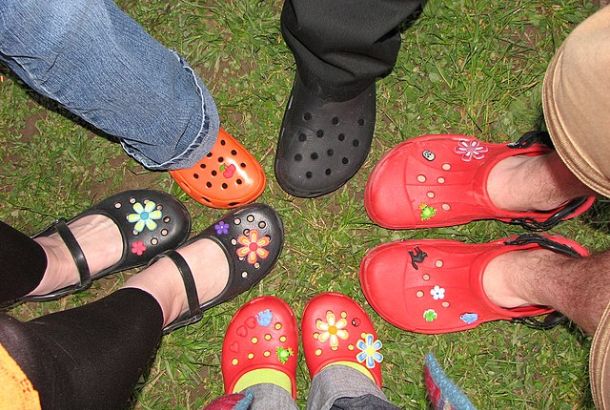Black Friday: Is the thrill of a good deal worth our dying planet?
By Olivia Tough

Black Friday: a day for ravenous consumerism. In 2023, the UK will shell out almost £8.7 billion, all for the thrill of a good deal. 29% of consumers will spend the most on clothing; Pretty Little Thing, H&M, and Zara have slashed prices by as much as 40%. So, it won’t be long until your entire TikTok For You page or Instagram Explore feed is flooded with hauls that shimmer with phrases like “don’t walk, run to get this dress,” “here is my £500+ Shein order,” or “don’t miss out!”
Black Friday is fuelled by adrenaline, temporary serotonin rushes, and the abject fear of missing out. Yet the parcels of polyester never quite satiate our appetites for more: overconsumption is never satisfying. While we can push Black Friday bargains to the back of our wardrobe and forget them, the planet and the people who make them are not afforded this luxury.
The fashion industry is bad news. It is the third largest polluting industry, behind fossil fuels and agriculture; it emits 5% of all greenhouse gas emissions, makes up 10% of all industrial water usage, and 57% of discarded clothing goes to landfill.
Statistics like these recently prompted a campaign from the French government aiming to deter Black Friday shoppers from buying unneeded clothing. In the advert, a shop assistant dissuades a man from buying clothes to protect the planet and his finances. Although this proved unpopular in the textile industry, the campaign is a necessary reminder that just because we can consume doesn’t mean we should.
The question of when we should consume is rife on social media; the phrase “there is no ethical consumption under capitalism” garnishes online discussion. It sits like a sprig of parsley— looking appealing but adding little.
It is a ‘hot take’ that centres on the idea that, because capitalist systems of production are inherently exploitative, it is unfair to ask the consumer to be ‘ethical’ in their purchasing. Furthermore, sustainable brands are usually more expensive than their fast-fashion counterparts; the suggestion that shoppers should be more climate-conscious is thus often deemed classist and inaccessible for some.
While I agree that it is wrong to demand so-called ethical consumption from the working classes, it irritates me when the phrase (“there is no ethical consumption under capitalism”) is used to excuse excessive Shein hauls or an influencer’s partnership with Boohoo. There is a clear difference between the basic need for clothing and this grotesque overconsumption. Buying what you need from fast fashion companies is fine, but owning nineteen tops imported from China or eight pairs of jeans is unnecessary.
Furthermore, this argument is only concerned with the working class in the Western world; it pays no mind to the garment workers in developing countries, of whom less than 2% earn a living wage.
They work long hours for little money, often in extremely dangerous conditions. In 2013, over 1000 people died when a factory collapsed in Dhaka. This is clearly wrong, and most of us know this, yet the fast-fashion industry continues to thrive on our unquenchable thirst for stuff.
The model of overconsumption is now even seeping into second-hand fashion – a supposedly completely sustainable market. I was surprised to receive emails from Thrifted last week that promised me “Up to 80% off all sweatshirts and jackets.” It felt like the sort of email Pretty Little Thing would send out: one in which the attractive prices make buying far more than you actually need incredibly appealing. While buying second-hand is better than buying new, overconsumption is still a dangerous model to subscribe to.
Chanting that “there is no ethical consumption under capitalism” into internet echo chambers while spending hundreds on the H&M website is not some kind of anti-establishment radicalism. It is not a cool-girl Twitter take that renders nuance redundant in two sentences. It is a dull, reductive idea that wrongfully suggests our right to 85 different outfits is more important than the basic rights of garment workers, as well as the planet’s health. It suggests that we shouldn’t even try to be better, which is extremely dangerous.







